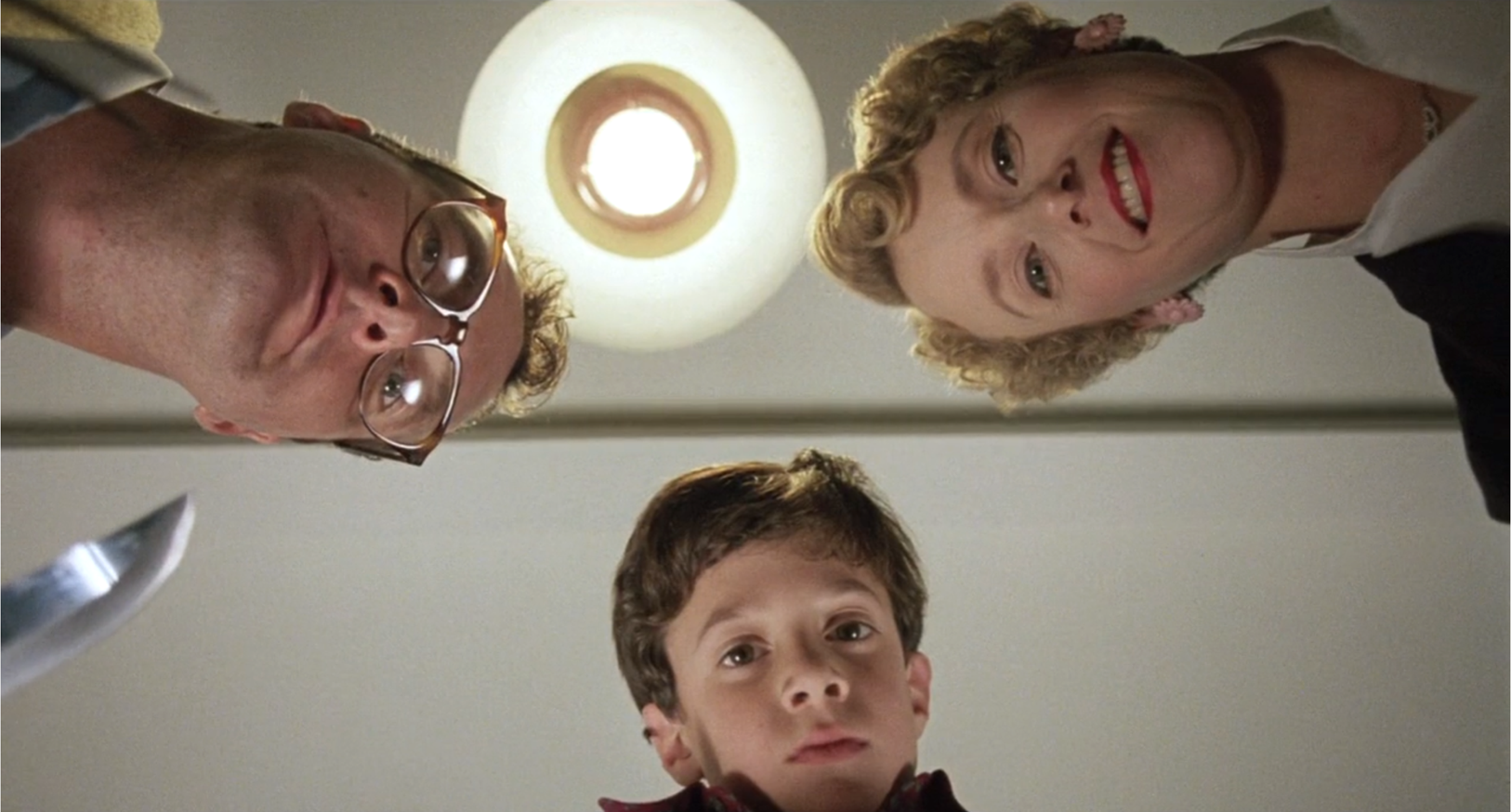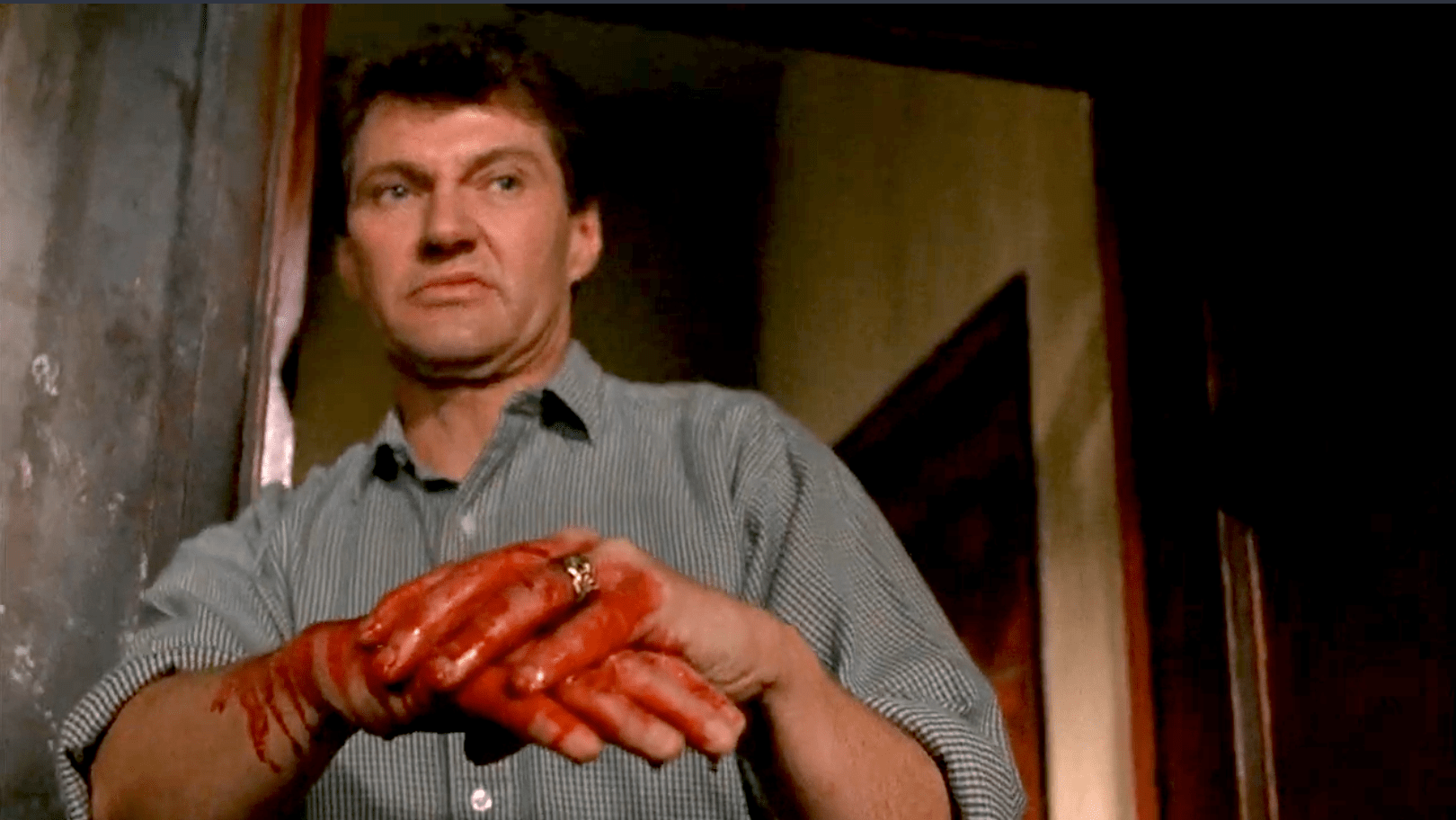
Having just barely made it out the other side I don’t know what to think of Andrzej Żuławski’s Possession. It was a pretty unpleasant experience. It’s an intense and feverish film that feels like equal parts Cronenberg and Polanski. There is the body horror and creepy sexual undercurrents of Cronenberg and the alienation and spiraling madness of Polanski.
The dialogue was bad, at least I think it was bad unless there was some purposeful artificiality going on. The whole film has a weird dissociative tone where no one seems to be genuine. Either Żuławski purposefully removes realism and replaces it with something stilted and seemingly off-kilter, as Lynch does in many of his films, or Żuławski is stumbling through dialogue that just doesn’t work. The awkward dialogue results in awkward acting. Neither Sam Neill nor Isabelle Adjani manages to make their characters believable, but perhaps they are not meant to be.
The film is entirely overwrought. The intensity is dialed up to ten and kept there for two hours. Both leads are required to dig into their primal core to bleed, vomit, stumble and scream their lungs out. I stopped the film a few times just to have a break.
Possession is as difficult to watch as it is to assess. It defies easy classification and there is an unnerving resonance that persists after the movie ends. I was looking forward to shaking off its pall, but it lingered. Part of the reason I am writing this is to try and put the whole thing behind me.
Żuławski made Possession during his difficult divorce from actress Małgorzata Braunek. If Possession is meant to be seen as a metaphor for the dissolution of his marriage it does not reflect well on Żuławski. If the character of Anna refers to Braunek then Żuławski’s depiction of her is pretty malicious and vindictive. Anna is a horrific mess. She is meant to be descending into madness but she is already mad when we meet her. She is an incomprehensible, manic, whirlwind that certainly gets worse as the movie progresses but she is never depicted as reasonable or whole even in the beginning.
If Anna’s husband Mark is meant to be a reference to Żuławski he doesn’t come off well either. Żuławski tries to present Mark as at least marginally more patient and reasonable than Anna but he soon begins to develop into a miserable, codependent, stalker.
Cronenberg made his film The Brood when he was divorcing Margaret Hindson. It seems a little childish to write and direct a film about insane women as a means of navigating a painful breakup. Both The Brood and Possession end up fumbling into misogynist territory. What are essentially personal grievances with these men’s specific partners end up being universalized as essential aspects of all women.

In both The Brood and Possession the primal power of women as creators of life is twisted into something horrific. Both women end up birthing an abomination that stems from their derangement. The women can not control themselves and in their confusion create things that destroy the ones they love and eventually destroy the women as well.
Looking at what I have written so far it seems I have nothing positive to say about Possession. I generally avoid writing negative reviews and I didn’t intend for this to be one. Possession is compelling. It keeps you disoriented and upset and in search of resolution.
I hoped to find some insight in reading the reviews for the film but mostly they seem to reduce the film down to a metaphor for Żuławski’s divorce and leave it at that. There are symbolic gestures and ideas presented that go beyond just anger, guilt, and regret. Possession is expansive and seeks to speak about human nature.
The film takes place in Berlin, and the wall can be seen as a recapitulation of the couple’s divorce but the wall is also about control. The wall is the result of trying to control a population. Mark desperately wants to control Anna and Anna is manically set on absolute freedom. Neither are able to control themselves or each other. Anna can’t get Mark to leave her alone, but she also can’t leave herself alone. She is in a constant state of conflict within her own mind. She is grotesquely tortured and tormented by herself in scene after scene. There is no moderation in her character just a constant flow of primal horror that erupts in torrents from her mouth and body.

Żuławski’s has been likened to Bergman in the way that he freely unfurls his character’s inner turmoil, but I do not see the similarity. Bergman is sober and calculating. He seeks to plumb the depths of his characters and find the roots of the angst that cows humanity. Żuławski pushes his characters into apoplectic fits of hysteria which end up being a stand-in for depth. I’m sure the actors have to dig deep to find the truly blood-curdling screams Żuławski requires, but sincere or not a scream is still just a scream, it illuminates very little. No one yells in Winter Light.
Żuławski, with help of Bruno Nuytten, his cinematographer, manages some innovative and gripping camera movement. There is certainly some influence from Brian De Palma. The camera spins and moves and is almost never still. It functions as an expressive tool riding the drama being developed by the actors.
If someone asked me if they should see Possession I don’t know what I would say, but in a way that is its strength. It is not easily dismissed even if you want to dismiss it. With its weaknesses, and strengths, and its intentional as well as unintentional qualities Possession holds together as something challenging and rich even if it makes me wince when I remember it.

If you enjoyed this article you might also enjoy this -
www.filmofileshideout.com/archives/anguish-half-a-great-movie



